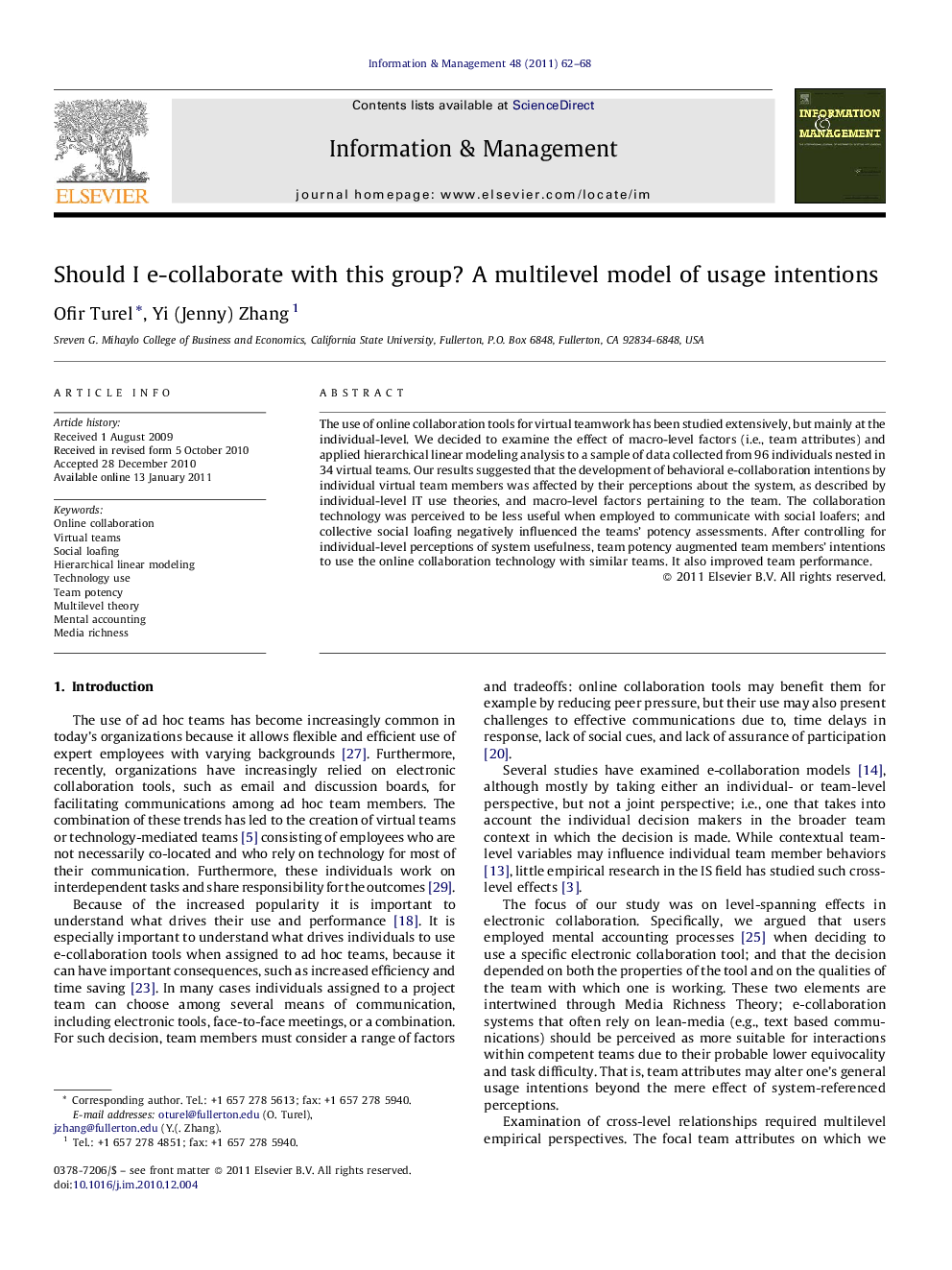| Article ID | Journal | Published Year | Pages | File Type |
|---|---|---|---|---|
| 553972 | Information & Management | 2011 | 7 Pages |
The use of online collaboration tools for virtual teamwork has been studied extensively, but mainly at the individual-level. We decided to examine the effect of macro-level factors (i.e., team attributes) and applied hierarchical linear modeling analysis to a sample of data collected from 96 individuals nested in 34 virtual teams. Our results suggested that the development of behavioral e-collaboration intentions by individual virtual team members was affected by their perceptions about the system, as described by individual-level IT use theories, and macro-level factors pertaining to the team. The collaboration technology was perceived to be less useful when employed to communicate with social loafers; and collective social loafing negatively influenced the teams’ potency assessments. After controlling for individual-level perceptions of system usefulness, team potency augmented team members’ intentions to use the online collaboration technology with similar teams. It also improved team performance.
